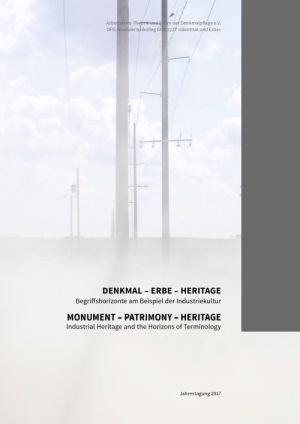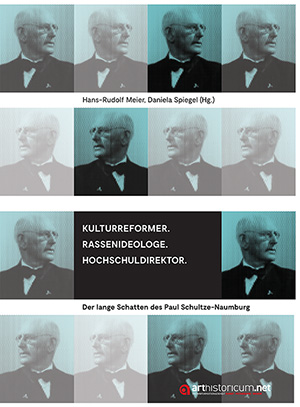Bogner, Simone
Denkmal – Erbe – Heritage: Begriffshorizonte am Beispiel der Industriekultur
This Volume offers two languages (german/english)
If “Sharing Heritage” is to be taken seriously, then it must have consequences for the assessment of value – in Europe, but also beyond: in place of the more exclusionary “World Heritage”, which tends to foreground each country's own, often nationally-defined achievements and merits, we should strive toward the creation of a “Global Heritage,” one capable of building bridges on the basis of universal values, thereby bringing the world’s people closer together as a global community with a common destiny.
The 2017 Annual Meeting of the Working Group on Theory and Education in Heritage Conservation on the topic “Monument – Patrimony – Heritage” at the TU Berlin was at the same time the first Annual Meeting of the Research Training Group 2227 “Identity and Heritage” (GRK 2227), funded by the DFG. A cooperation between the two was particularly opportune, as the Working Group had decided on Berlin as the location of the annual meeting and, in view of the motto “Sharing Heritage” of the European Cultural Heritage Year 2018, to dedicate it to a discussion of monument and heritage terminology, while the Research Training Group, with seats in Berlin and Weimar, had been launched to address such questions and a number of colleagues are active in both bodies.
Kulturreformer. Rassenideologe. Hochschuldirektor: Der lange Schatten des Paul Schultze-Naumburg
Being a co-founder of important institutions like the Werkbund and the Deutscher Bund Heimatschutz, Paul Schultze-Naumburg (1869-1949) belongs to the most important representatives of German cultural history of the early 20th century. After the First World War, though, the painter, author, entrepreneur, architect and politician radicalised himself developing an increasingly racist attitude and joining the NSDAP at an early stage.
From 1930 to 1940 Paul Schultze-Naumburg directed the “Staatliche Hochschulen für Baukunst, bildende Künste und Handwerk“ in Weimar. In his attempt to align the former Bauhaus with the new rulers' ideology, he developed an explicitly anti-modern didactic concept which focused on glorifying the tradition of german craftsmanship.
This volume takes a closer look at Paul Schultze-Naumburgs life and work as well as at the profile the Hochschule Weimar was given under his directorship. Further, the impact of this contradictory, difficult personality are discussed. The book presents the results of a scientific symposium, organized by the Bauhaus-Institut für Geschichte und Theorie der Architektur und Planung which was held at the Bauhaus-Universität Weimar on December 3rd & 4th, 2015.








